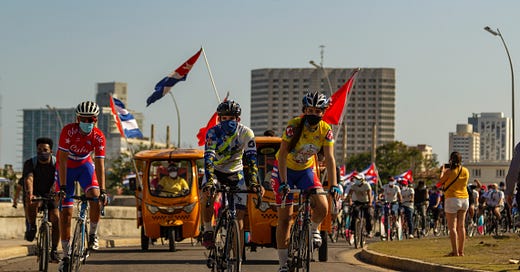In reviewing the various commentaries with respect to Cuba since July 11, I came across an article that illustrates what I call the “anthropological research fallacy,” which I encountered when I organized educational programs in Cuba for professors, graduate students, and undergraduate students from 1997 to 2010. The article in question is “El estallido social Cubano,” by Emilio Santiago Muíño, which was originally published on July 21 in Contexto y Acción and reproduced in two parts in the website OnCubaNews on July 22 and July 26.
The article begins with declarations of fact that are fundamentally inconsistent with empirical reality as observed from the ground in Cuba. “On July 11 thousands of Cubans took to the streets in massive and unprecedented protests, that had its initial focus in the municipalities of San Antonio de los Baños (Artemisa) and Palma Soriano (Santiago de Cuba), and that in a few hours extended throughout Havana and the rest of the country.”
For re…


